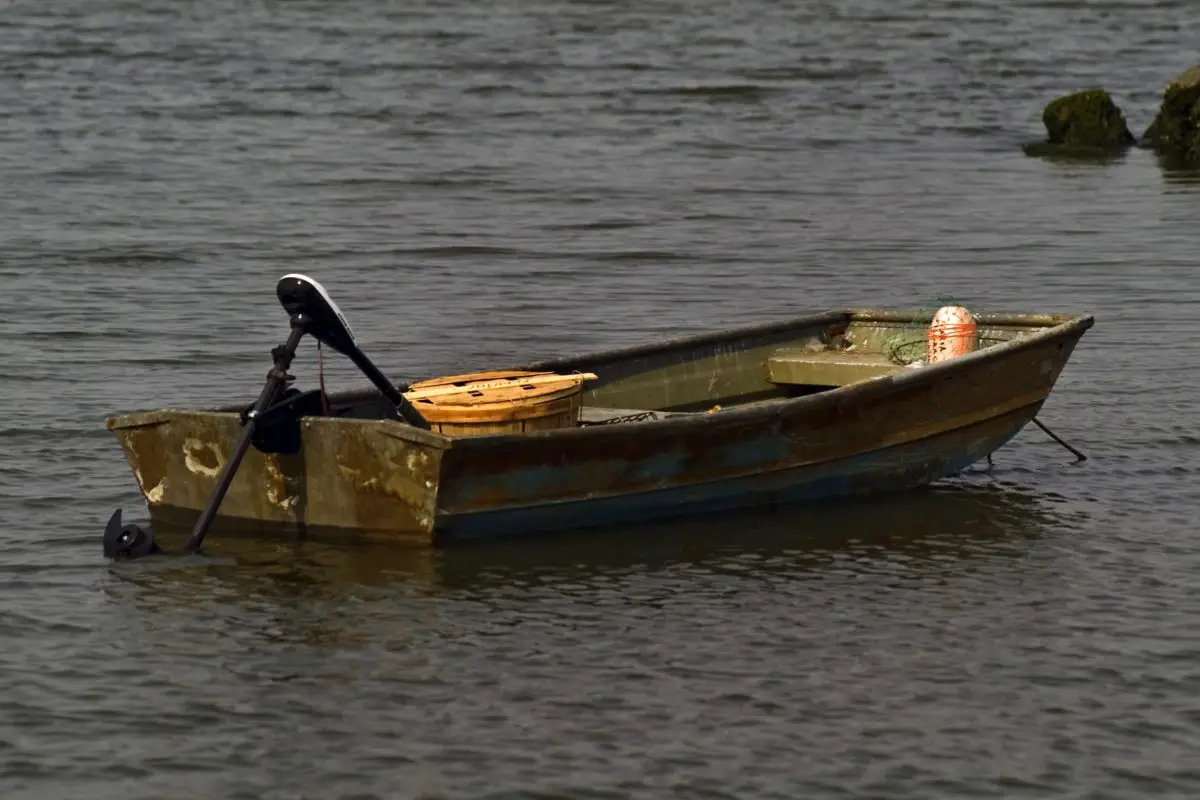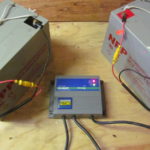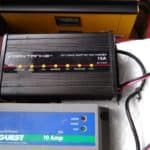Electric trolling motors are cheap, quiet, and reliable ways of getting some extra power on small boats like kayaks. However, boating regulations can get a little tricky when they involve motorized boats. This leaves many wondering what would happen if they got an electric trolling motor for their kayak or small vessel.
Electric trolling motors or any vessel powered by any type of motor is considered a motorboat. Although electric trolling motors are smaller, quieter, and cleaner than regular gas motors, they are still considered motors, and any vessel powered by one is considered a motorized boat.
You should know your state’s rules and regulations regarding motorboats before purchasing an electric trolling motor. Keep reading to learn what to expect from owning an electric trolling motor-powered vessel.
Note: most links in this article are Amazon.com Affiliate links, see Affiliate Disclosure, thank you.
Disclaimer: The information in this article was researched in February 2022 and will be updated once a year.
What Constitutes a Motorized Boat?
Any boat that’s not human-powered is considered a motorized boat. Therefore, it doesn’t matter how the motor itself draws power. As long as the vessel has an artificial propelling mechanism, it’ll be classified as a motorboat.
Maybe it seems silly, but your 12-foot (3.66-meter) kayak will automatically become a motorboat if you get a trolling motor for it. You should be mindful of this point before purchasing a trolling motor, as upgrading a non-motor vessel to a motor vessel comes with different requirements.
Motorizing your boat—as small as it may be—will generally involve registering your boat with your state. This issue may trigger a series of additional requirements that may involve getting a boat license, completing a boating education course, and even paying taxes.
Will I Need To Register My Kayak if I Get a Trolling Motor?
You’ll need to register your kayak with your state if you get an electric trolling motor for it. The only exception is if you live in Alaska, South Dakota, or Wyoming, as these are the only three states that don’t have any boating registration requirements.
If you live in any of the other 47 states, then you’ll definitely have to register your kayak when you add a motor. Some states require you to register trailers that you tow your kayak on if you have one. Registering the boat is usually not too complicated, and many states will allow you to do it online.
To register your boat, you’ll need:
- A completed application form. Visit your state’s DMV website to find the appropriate application for you.
- Proof of ownership. It can be either your receipt from the store or a bill of sale.
- Pay the applicable fees. These fees generally range from $5 up to $200, depending on your state and boat size.
Your state may have additional requirements for boat registration. Always check your local DMV’s office website for the most up-to-date information on these requirements.
Some states don’t require motorboat registration if the vessel will only be used on private lakes and waterways. Other states, like California, do require all vessels with any kind of motor to be registered, even if they’ll only navigate private waters.
Do I Need a License To Operate a Trolling Motor Boat?
You don’t need a license to operate an electric trolling motor boat. The only exception is Alabama, where all motorboat operators must have a valid Operator License.
With that said, other states may require that you complete a boat safety education course before operating a motorized boat. Here are some examples:
- Florida requires all operators of a boat with ten or more horsepower to carry with them a safety education ID card from the Florida Fish and Wildlife Conservation Commission.
- California requires operators 16 and older to carry with them a California Boater Card any time they operate a vessel with 15 horsepower or more.
- Texas requires all operators of a vessel with 15 or more horsepower to complete a Boater Education Certification Course.
Again, these laws vary by state, so make sure to check your state’s DMV website.
Luckily, most states have a minimum horsepower threshold for requiring any type of license or safety course. If you’re thinking about getting an electric trolling motor boat, your vessel won’t exceed ten horsepower.
Most electric trolling motors have up to 1.5 horsepower, so they’d fall well beyond the threshold of 10 horsepower. Our number one electric trolling motor recommendation, the Minn Kota Terrova Trolling Motor (available on Amazon.com), has a thrust of 80lbs (36.28 kg), which equates to approximately 1.35 horsepower.
Do I Have To Pay Taxes on a Trolling Motor Boat?
You’ll likely have to pay property taxes on your trolling motor boat if you get it registered with the DMV. The tax bill will come from your county or state, and in most cases, won’t amount to more than $10 a year for a small boat with an electric trolling motor.
The amount of property taxes you have to pay will ultimately depend on your county of residence or the county where your vessel is registered. It might seem silly, but even a small kayak will count as property if it needs to be registered with the state. Thus, you’ll receive a small bill for the corresponding taxes in the mail.
Depending on the state, your boat’s length determines if you need to pay a tax or not. Some states only impose taxes on diesel and gas motors, excluding electric engines.
These are different from sales taxes, which also depend on the county in which you made the purchase. Some states, like Texas, have different sales taxes for boats and boat motors, which may apply to your electric trolling motor.
Can Electric Trolling Motors Be Used in Places That Don’t Allow Motors?
Electric trolling motors cannot be used in places that don’t allow motorized vehicles. Although electric trolling motors are quieter, slower, and cleaner than regular gas motors, they’re still considered motors and shouldn’t be used if motorized vehicles aren’t allowed.
Many lakes, rivers, and reservoirs will prohibit motorized vehicles for many reasons, and electric trolling motors are no exception to the rule. “No motors” means no motors, and you don’t want to face a hefty fine if a fish and game warden questions your interpretation of “no motors.”
With that said, there may be some exceptions to the rule. Many lakes will restrict the use of internal combustion engines specifically to conserve the ecosystem. Since gas engines leave an oil residue on the water surface, the reasoning behind banning motorized vehicles might be specifically to prevent this problem.
If that’s the case, then the lake may specify that electric motors are okay or that only internal combustion engine motors are prohibited. If you didn’t find any specifics, the best option would be to call or email ahead of time and ask specifically if electric motors are fine.
Some lakes will ban motors to protect the fish and marine life from being disturbed. In any case, it doesn’t hurt to ask ahead of time!
Final Thoughts
Electric trolling motors are fun and inexpensive ways to upgrade your small vessel and automate navigation. However, they may come with many strings attached that you should be aware of.
Some of the things you should consider before buying an electric trolling motor are:
- You may be required to register your vessel with your DMV when you get an electric motor, no matter how small your boat may be.
- You may need to get a license or complete an education course to operate the motorboat.
- You may have to pay property taxes on your motorized boat.



